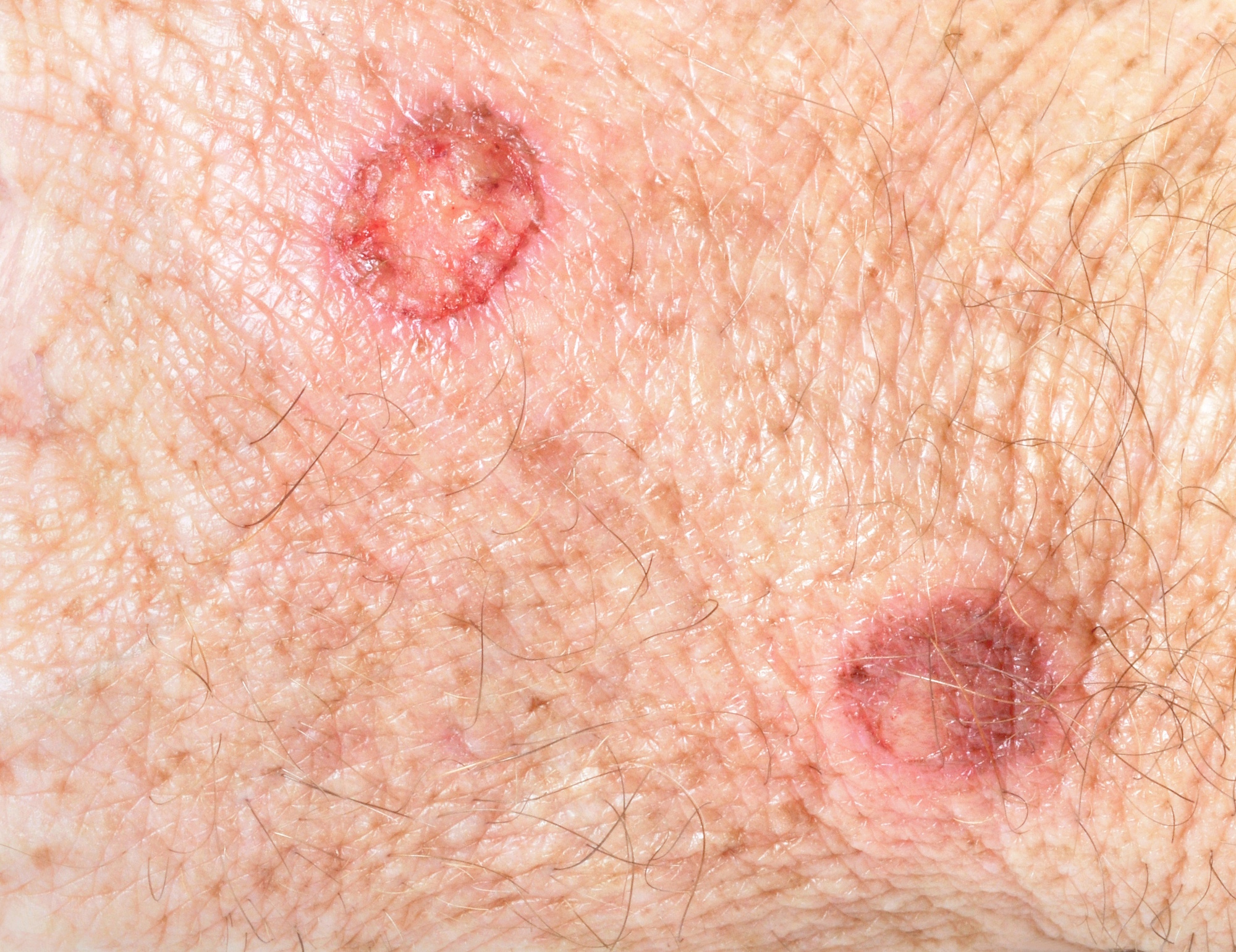
What is Basal Cell Carcinoma?
Basal Cell Carcinoma (BCC) is the most frequently occurring type of skin cancer. Fortunately, this type of skin cancer almost never spreads beyond the original site. It has spread and become life-threatening only in rare cases. Still, Basal Cell Carcinoma isn’t something to be taken lightly. “These tumors are locally destructive,” says Dr. Adam Mamelak, dermatologist and skin cancer specialist in Austin, Texas. “They can eat away at healthy tissue, and can be extremely destructive and disfiguring if not treated.”
What Causes Basal Cell Carcinoma?
Basal Cell Carcinoma is most commonly caused by long-term sun exposure, or possibly intense but short-term exposure, such as a long day at the beach which leads to sunburn. As a result, most cases of Basal Cell Carcinoma occur on areas of the body which have been directly exposed to the sun, like the arms, shoulders, scalp, neck, and back. However, tumors have also occurred on sun-protected areas.
While not causes of non-melanoma skin cancer in and of themselves, exposure to radiation, contact with arsenic, chronic inflammatory skin conditions, open sores which are resistant to healing, and complications with burns, scars, infections, vaccinations, or in some cases even tattoos can all be considered contributing factors in come cases.
What Are my Risk Factors?
“While anyone with a history of sun exposure can potentially develop Basal Cell Carcinoma, individuals are generally more at risk if they have lightly pigmented skin which burns easily, have blue, green, or grey eyes, and have either natural red or natural blond hair,” says Dr. Mamelak. There have also been studies which suggest that a tendency to develop BCC may be inherited, so knowing your family history is important in determining your potential risk factor in this area.
Contact Us
Dr. Mamelak treats skin cancer patients at Sanova Dermatology and the Austin Mohs Surgery Center. To learn more about Basal Cell Carcinoma or to have your skin checked by one of our dermatologists, contact us.
